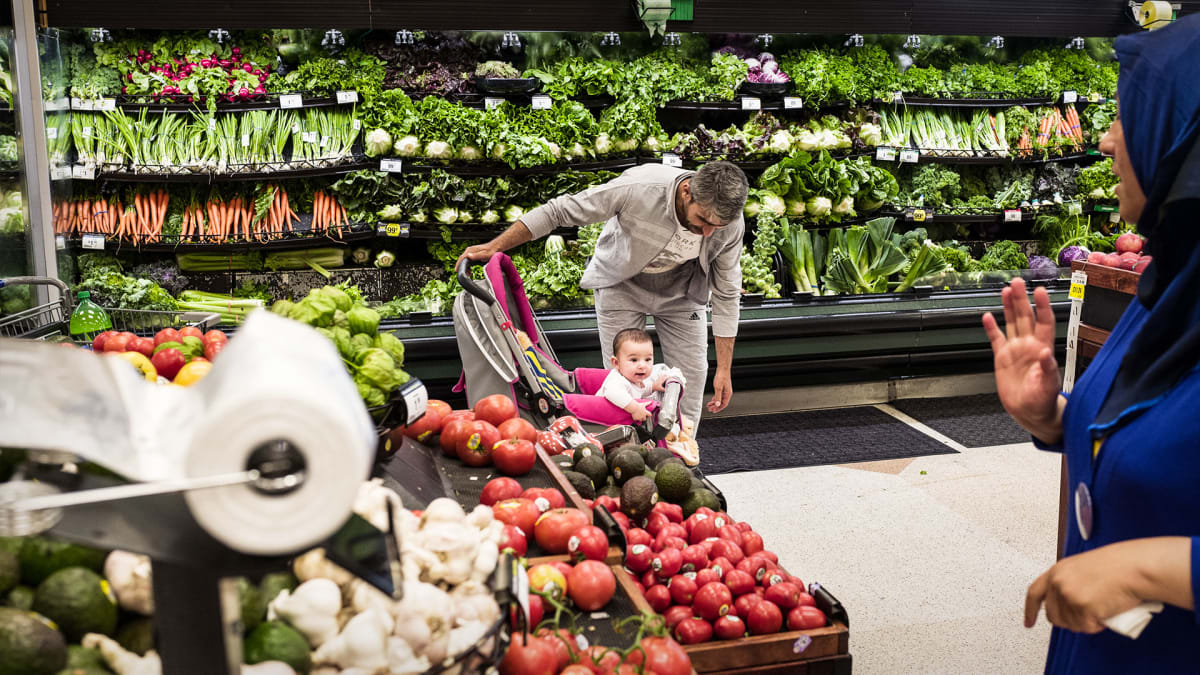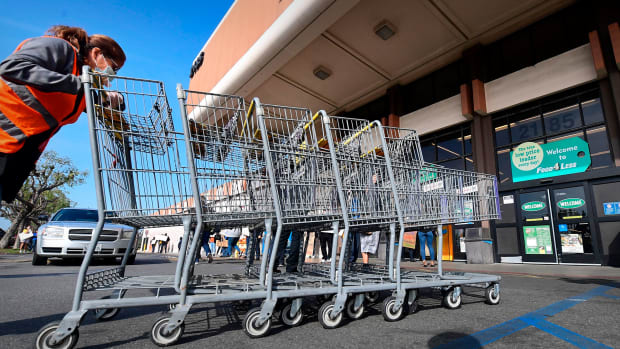
In retail, bigger almost always equals better. That might not be true in niche specialty markets, but when you move into broad commodities -- like the grocery business -- size matters. That's actually more true in the grocery space than other consumer goods because multiple players have decided to largely use groceries as a loss leader.
Walmart (WMT), Costco (COST), and Amazon (AMZN) have a national footprint and they don't need to make a high margin (or any margin) selling groceries. Both chains can use food as a loss leader to help them capture customers for their other businesses. Basically, all three of these major chains with massive buying power have the ability to sell groceries at whatever price they want.
That puts massive pressure on local grocery chains, even large ones including Kroger (KR) and Albertsons (ACI). Those chains may have locations near their customers (Walmart has that too) but they actually have to make money selling groceries.
Inherently, Kroger and Albertsons are small, local players in relation to Walmart, Amazon, and Costco. Merging -- as the two grocery chains are trying to do -- would give them more scale, more buying power, and a bigger network of stores to leverage delivery and loyalty programs against.
Now, a consumer group has filed a deal to block Kroger's $25 billion purchase of Albertsons, a misguided effort that would only help Walmart, Amazon, and Costco,

FREDERIC J. BROWN/AFP via Getty Images
Kroger Needs Albertsons
Kroger has a $32 billion market cap while Albertsons' currently sits at $11.5 billion. Together, the two companies would have a $43.5 billion market cap, a number that's less than 10% of Walmart's $382 billion and a rounding error for Amazon's $1 trillion market cap. Costco "only" has a $228 billion market cap which still makes the potentially combined Kroger and Albertsons a small, regional player in comparison.
The lawsuit, which was filed in California on behalf of plaintiffs in California, Florida, and Texas seems to not be aware that grocery chains don't just compete with other grocery chains.
"Kroger’s plan to acquire rival Albertsons will combine the biggest and second-biggest supermarket companies in the country by sales, thereby tending to create a monopoly," the lawsuit alleges.
It would combine the top-two supermarket companies, since Walmart, Costco, and Amazon don't define themselves by that term, but it would most certainly not create any sort of monopoly. The lawsuit further ignores the existence of those players in another claim.
"The combination of these two giants will create a supermarket behemoth with a combined market share and control of 36% of the U.S. grocery supermarket operators with a combined annual sales of more than $200 billion."
That claim is accompanied by a chart that shows supermarket chains like Publix, Aldi, and Trader Joe's without mentioning that three behemoths that make every company on the list look small all have a major presence in groceries.
Consumers Need Bigger Grocery Chains
Grocery prices move largely based on buying power and supply chain costs because most Americans have multiple choices when they shop. Yes, there are certain areas where consumers have limited brick-and-mortar choices, but Amazon and Walmart pretty much serve the entire country.
Some consumers, of course, want to shop at dedicated grocery chains and a combined Kroger and Albertsons would be a stronger company with improved buying power and greater efficiencies. That new company would still be at a major disadvantage to Amazon, Walmart, and Costco (probably Target (TGT) too).
A bigger Kroger is a better competitor to Amazon, Walmart, and Costco, but it's still likely to lose the pricing battle. The combined company has a better chance at survival in the face of competitors that have every advantage of pricing and scale.
TheStreet wants you to invest wisely in this volatile market. Our wealth-building investment and stock trading subscriptions help grow portfolios at all investing levels.







